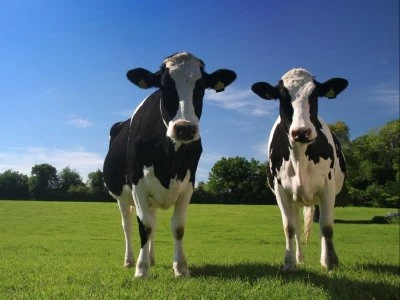As we sit down to a meal at home, few of us consider how far our food has had to travel to end up on our plate.
Yet 'food miles' – the distance food covers on its trek from field to table – have serious financial, social and environmental implications. As concerns over climate change grow, these distances are coming under closer scrutiny.
So just what are the implications of long-haul food transport, and what steps should we be taking to keep our food miles to a minimum?
Road to ruin
Even food that is produced here in the UK will still have travelled hundreds of miles before it's ready for our consumption. This mass transportation of food makes up around 25% of all Heavy Goods Vehicle activity on UK roads – and that's well over 20 billion vehicle miles.
As such, food transport has a huge impact on traffic congestion and road accidents, as well as noise and air pollution. The carbon dioxide emissions from food transport are also negatively linked with climate change.
Sky high emissions
UK food transport created 19 million tonnes of carbon dioxide in 2002 alone, ten million of those being emitted in the UK itself. That figure represents almost 2% of the UK's total carbon emissions and 8.7% of emissions from the country's roads.
Our food travels so much because goods are commonly sent one place for processing, somewhere else to be packaged and then back to the supermarket to be sold.
In extreme cases, food is transported to a different country to be processed, purely because labour costs are less expensive.
Importing from abroad (a common practice as the UK does not have the year-round climate to supply all fruit and vegetables), has further environmental implications. Transporting food by air is the fastest growing method of carriage but also has the highest CO2 emissions, making it the mode of transport most damaging to the environment.
What can we do?
The government aims to cut the social and environmental costs of food transport by 20% in the next six years. Those costs are currently estimated at £9bn per year.
Consumers can also play their part in cutting those costs – and cutting food miles. Here's how:
- As shoppers, we are directly responsible for adding to food miles every time a journey to the supermarket is made. We each drive an average of 135 miles per year to shop for food – so simply by cutting down on that figure is a step in the right direction.
- Make use of supermarket deliver-to-your door services or shop with a friend – both ways of sharing the transport.
- Where possible, buy from local producers, village shops and farmers markets.
- Creating a higher demand for local produce can have an impact on the levels of food being sourced from abroad – in turn providing a great boost to local farmers and small businesses.
Grow your own
- If and when you do make a supermarket trip, buy British when the season allows. All produce should be clearly labelled with its country of origin.
- You could even take to growing some produce of your own, in a garden or allotment. Good exercise and healthy, fresh food, what could be better?
One last tip
- It's also important to remember that the environmental implications of food transport don't stop once products arrive in your kitchen. Packaging and leftovers which get thrown out have to be transported to a landfill site – and there is usually a lot of it.
- The average household throws out nearly 15kg of food packaging every week. Simply by purchasing less heavily-packaged goods, or using what waste you can for compost, you are doing one more good deed for the environment.
Consumers interested in food production in relation to environmental issues might also like to visit the LEAF (Linking Environment & Farming) website.







